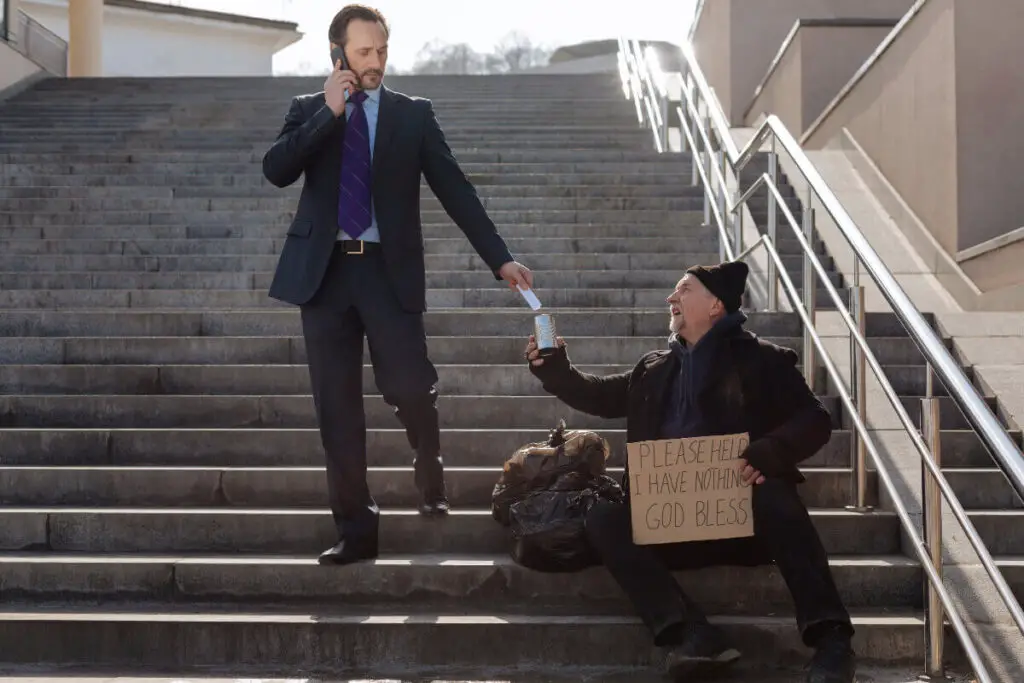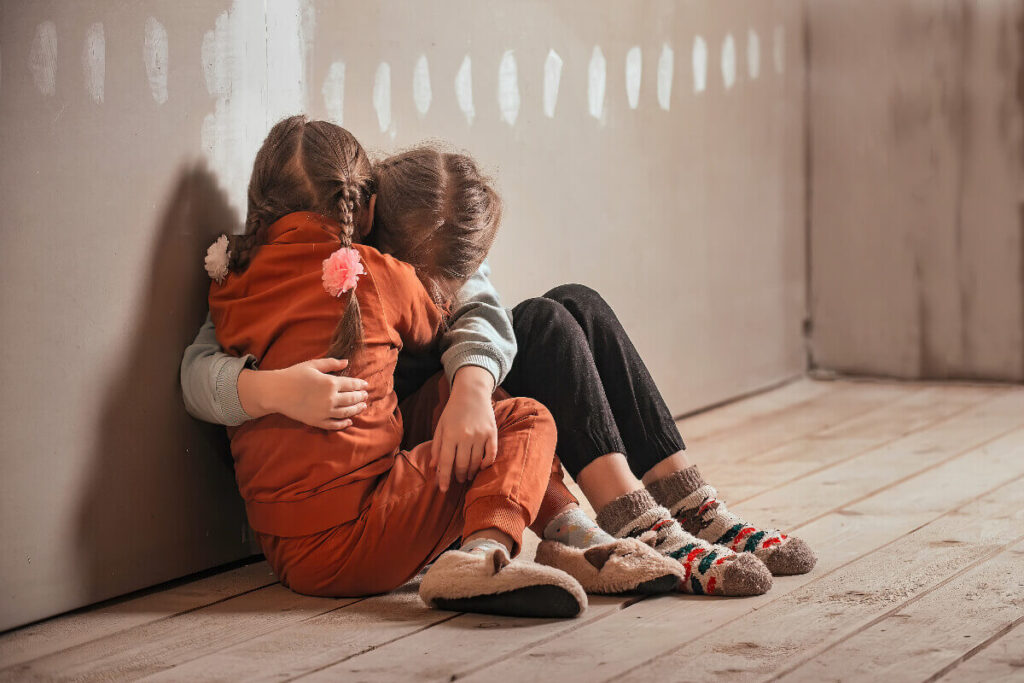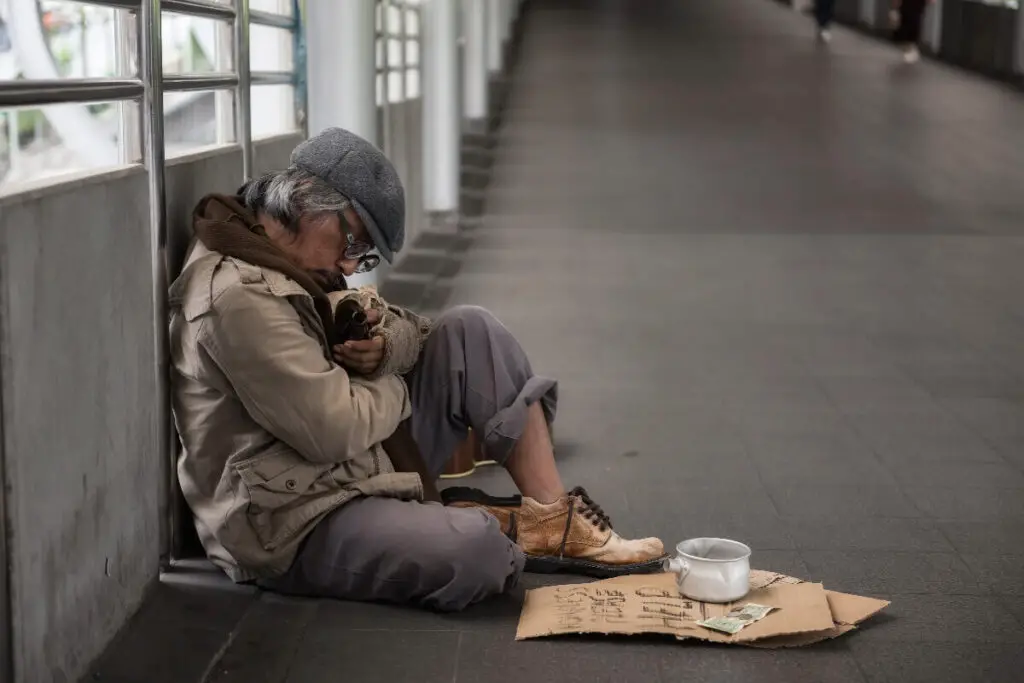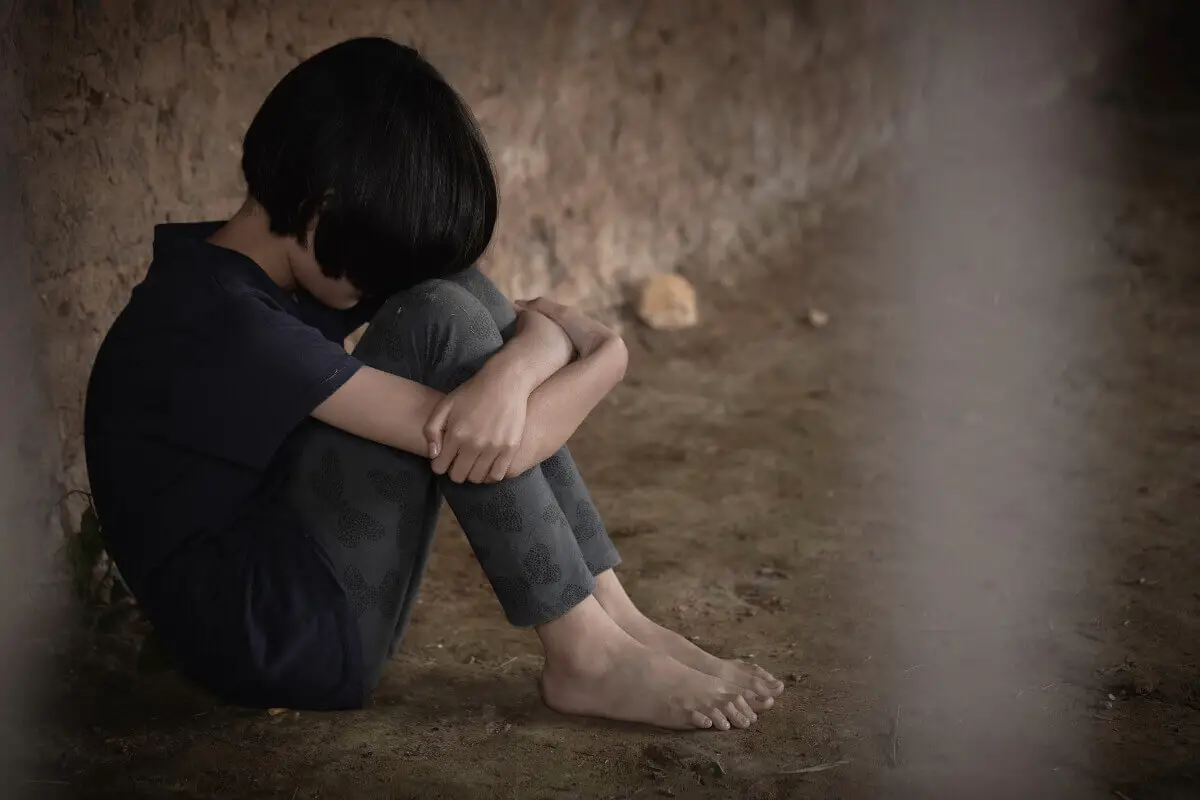Poverty and social injustice are closely entwined today, forming a self-perpetuating loop that grows harder to dismantle over time.
Even as we advance technology, experience economic growth, and achieve milestones in social equality, a sizable segment of society continues to be sidelined, lacking access to fundamental necessities and avenues for upward mobility.
Table of Contents
- How Does Poverty Lead To Social Injustices?
- The Connection Between Poverty And Social Injustice
- Why Does This Poverty Cycle Perpetuate?
- 10 Ways Society Can Work To Solve Social Injustice And Poverty
- Related Content
How Does Poverty Lead To Social Injustices?
In modern society, poverty and social injustice are intricately linked, creating a vicious cycle that becomes increasingly difficult to break.
Despite strides in technology, economic development, and social progress, a significant portion of the population remains marginalized and deprived of basic needs and opportunities for advancement.
Read on as we explore how poverty leads to social injustices, why this vicious cycle perpetuates, and suggest ten ways society can work to alleviate poverty and social injustice.

The Connection Between Poverty And Social Injustice
To begin with, we must understand that poverty is not just a lack of money; it represents a lack of access to opportunities, essential services, and social mobility. This marginalization sets the stage for a wide array of social injustices.
Here are some key areas where poverty spawns social injustice:
Education
A lack of resources often leads to poor education. Schools in impoverished areas usually have fewer educational resources, lower-quality teachers, and outdated materials. A subpar education limits future opportunities, creating a perpetual cycle of poverty and inequality.
Healthcare
Access to quality healthcare is another primary concern. Poor neighborhoods often lack nearby medical facilities, and even when they exist, the residents may be unable to afford healthcare services. This leads to a lower life expectancy and a higher rate of diseases, perpetuating social injustice.
Criminal Justice System
People living in poverty are more susceptible to becoming entangled in the criminal justice system. Unable to afford quality legal representation, they often receive harsher sentences. Moreover, some may resort to illegal activities out of desperation, leading to a cycle of incarceration that only deepens their poverty.
Discrimination And Stereotyping
Poverty often accompanies racial, ethnic, or social discrimination. Stereotypes can affect the opportunities available to marginalized groups, causing employers, teachers, and law enforcement officials to mistreat them, which compounds their disadvantage.
Political Marginalization
Individuals in poverty are less likely to engage in political activities, like voting or advocacy, which hampers their influence on policies that could benefit them.

Why Does This Poverty Cycle Perpetuate?
There are ways that the poverty cycle perpetuates. Read on to explore some of the ways.
- Social Stigma: Poverty breeds a social stigma that influences public perception. The prevailing stereotypes that portray impoverished individuals as lazy or unworthy prevent a compassionate and realistic understanding of their situation.
- Systemic Barriers: Institutional systems, including criminal justice, education, and healthcare, often perpetuate inequality, making it difficult for impoverished people to escape their circumstances.
- Economic Policies: Regressive economic policies, like tax breaks for the rich or corporations, exacerbate inequality and social injustice as they divert resources from social programs to reduce poverty.
10 Ways Society Can Work To Solve Social Injustice And Poverty
There are many ways that a society can look to help alleviate poverty. Below are some of the primary ways:
- Universal Basic Income: A universal basic income can provide a financial cushion that allows people to seek better opportunities without worrying about immediate survival.
- Affordable and Quality Education: Investment in education, particularly in impoverished areas, can level the playing field and provide everyone with an opportunity for social mobility.
- Healthcare for All: Implementing a universal healthcare system can ensure everyone has access to medical services, irrespective of their financial situation.
- Judicial Reforms: Reforming the criminal justice system to be more equitable can reduce its disproportionate impact on impoverished communities.
- Fair Employment Practices: Implementing policies that require fair employment practices can mitigate discrimination and offer more opportunities for marginalized groups.
- Affordable Housing: Investment in affordable housing can ensure that everyone has access to a safe and comfortable living environment, reducing one of the main stressors associated with poverty.
- Community Programs: Grassroots community programs that offer free meals, childcare, and job training can provide immediate relief and long-term opportunities.
- Political Inclusion: Encouraging political participation among marginalized communities can help create policies that better represent their needs.
- Tax Reforms: Progressive tax policies that require wealthier individuals to contribute more can help fund social programs to reduce poverty.
- Social Awareness and Education: Last but not least, educating the public about poverty and social injustice can help reduce stigma and promote policies to tackle these issues.

While poverty and social injustice are complex problems with deep-rooted causes, acknowledging the relationship between the two is the first step in creating a more equitable society.
A multi-faceted approach to reducing poverty and promoting social justice is crucial to breaking the cycle and offering a better future for all.
The time for action is now. By addressing these issues collectively, we can work toward creating a society where poverty and social injustice are things of the past.
At Project Sprouts, we realize that we can not solve all the problems of poverty in a situation like this. But we can seek to make a difference in the lives of needy children by giving them school supplies and encouraging them to continue their education; we can give them winter coats, boots, and blankets to help them stay warm during the cold winter months.
Project Sprouts would love to have you be a part of our community and help us to help worthy children in North Vietnam. We cannot solve all the world’s problems, but we can do our part to help poor kids grow by giving school supplies, winter coats, boots, and other supplies.
You can find out more about Project Sprouts by clicking here or going to our give now page to donate by clicking here. As we are a grassroots organization, all funds go to help those in need.
Related Content
Poverty – The Responsibility of Individuals or Society?
Have you ever wondered if poverty is the responsibility of individuals for not working hard or is it the fault of society for not giving them the opportunity to develop themselves? In some Southeast Asian countries, there are some people who think that poverty is due to fate, decided by God and Buddha. From my point of view, I believe that poverty is not only the responsibility of individuals or the entire society, but the root of the problem originates from both of these factors.
You can learn more by reading Poverty – The Responsibility of Individuals or Society? by clicking here.
Does Poverty Cause Crime?
In life, money is not only a tool for people to measure success, and a person’s personality, but it is also the origin of a number of problems. Money can easily lure people into the abyss of criminal lust, make us lose our humanity, and go against the healthy development of society. In fact, poverty is the root cause of many crimes in the world such as theft, murder, trafficking, and the selling of contraband items.
You can learn more by reading Does Poverty Cause Crime? by clicking here.

